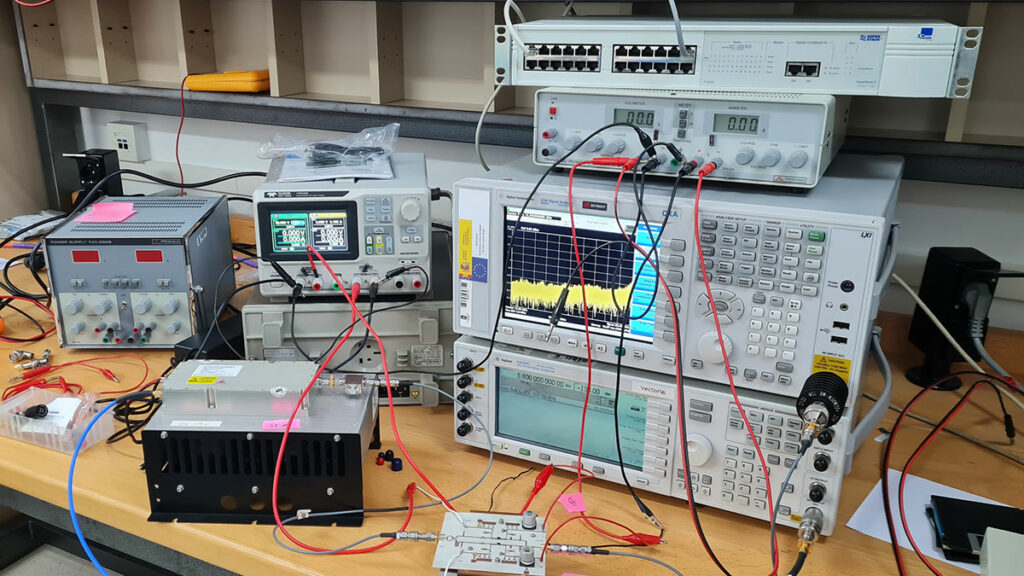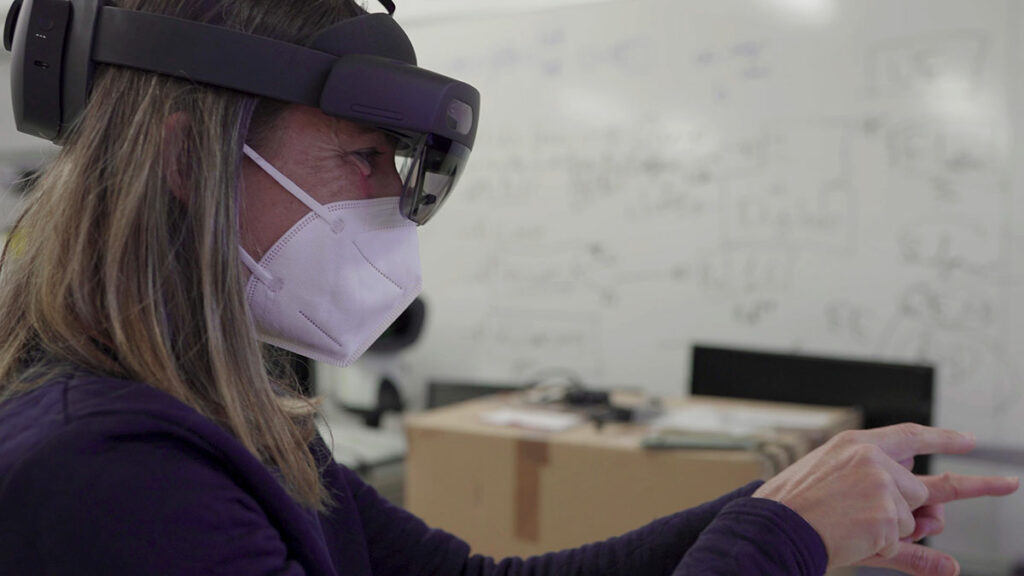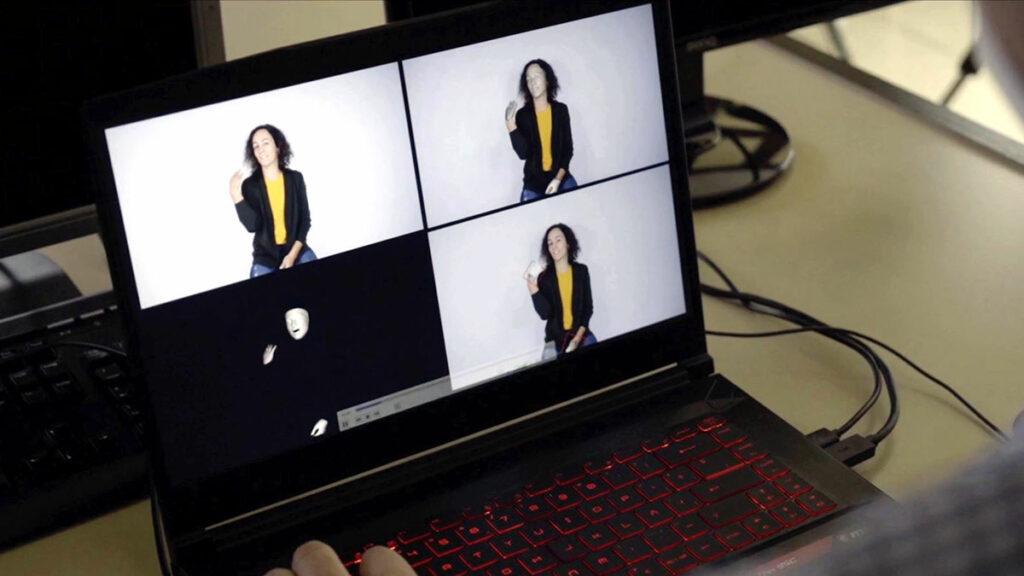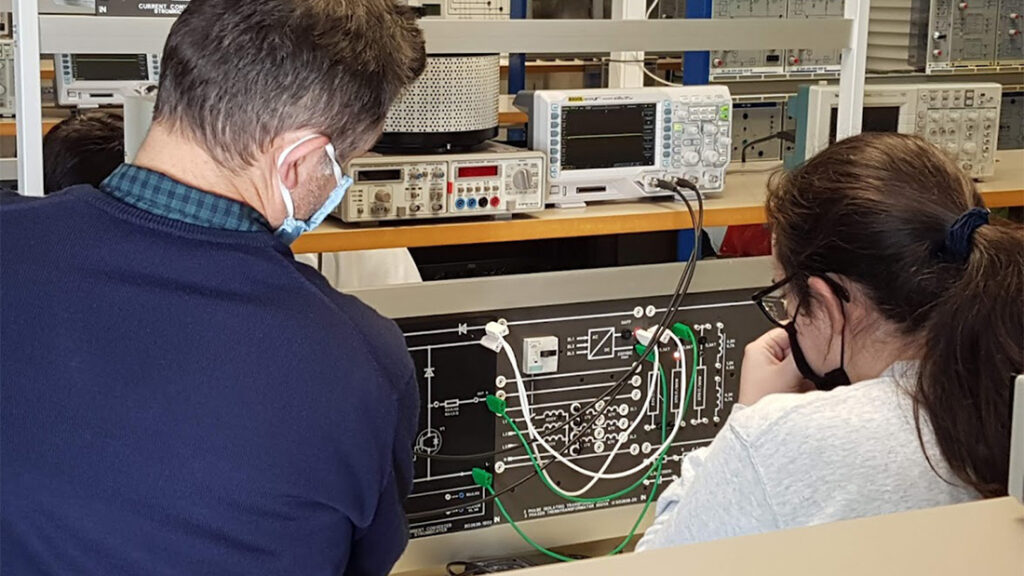The Bachelor’s Degree in Telecommunication Technologies Engineering consists of four itineraries that give access to the regulated profession of Technical Telecommunication Engineer in its different specialisations: Telecommunication Systems, Sound and Image, Telematics and Electronic Systems.
Each student must take at least one complete specialisation (48 ECTS, 8 courses), planned for the third and fourth academic years. Additionally ─and planned for the fourth academic year─ students can choose a total of 3 elective courses (18 ECTS) according to their interests.
All the courses that make up the mentions are elective, so an attractive option is to take two blocks of 48 ECTS (8 courses each block) between the third and fourth year, obtaining the degree with two specialisations, taking only 30 ECTS (5 courses) in addition to the 240 of the degree.
Specialisation in Telecommunication Systems
(48 ECTS)
Specialisation in Electronic Systems
(48 ECTS)
Specialisation in Telematics
(48 ECTS)
Specialisation in Sound and Image
(48 ECTS)
Electives
(18 ECTS)
The degree will enable graduates to practice the regulated profession of Technical Telecommunication Engineer, in a speciality depending on the path followed.
All graduates of this degree will meet the requirements for access to the Bachelor’s Degree in Telecommunications Technology Engineering established in Order CIN/352/2009, which establishes the requirements for the verification of official university degrees that enable the exercise of the profession of Technical Telecommunications Engineer.
Specialisation in Telecommunication Systems (ST)

This profile provides the necessary skills to assume responsibilities and functions related to mobile communications, optical fibre, radio and television systems, satellite communications, wireless systems, image processing, etc.
COORDINATOR:
Carlos Mosquera Nartallo
mosquera@gts.uvigo.es
+34 986 812 677
The 8 courses that conform the 48 ECTS of the mention are the following:
- Radio Communication Electronics
- High-Frequency Technologies
- Optical Communications and Photonics
- Radio Communication Systems
- Digital Signal Processing
- Digital Communications
- Radio Spectrum Management
- Radio Signal Detection
Specialisation in Telematics (TEL)

With this profile you have the necessary skills to assume responsibilities and functions related to telematic and multimedia services, big data, internet and other communication networks, cybersecurity, mobile app programming, etc.
COORDINATOR:
Juan Manuel Santos Gago
juan.santos@det.uvigo.es
+34 986 813 476
The 8 courses that conform the 48 ECTS of the mention are the following:
- Security
- Databases
- Network Architecture and Technology
- Distributed and Concurrent Systems
- Web Application Development
- Cloud Architectures and Services
- Network Analysis and Evaluation
- Advanced Network Technologies
Specialisation in Sound and Image (SI)

This specialisation is designed to work in the audiovisual industry (production, facility design, content distribution: streaming, digital television) but also in acoustic applications (in construction, industry, etc.). It also covers sound, image and video processing, including areas such as recognition, synthesis, artificial vision and applications of artificial intelligence in the audiovisual field.
COORDINATOR:
Fernando Martín Rodríguez
fmartin@uvigo.es
+34 986 812 151
The 8 courses that conform the 48 ECTS of the mention are the following:
- Interactive Systems
- Acoustic Engineering
- Sound Processing
- Image Systems
- Fundamentals of Image Processing
- Architectural Acoustics
- Audiovisual Facilities Design
- Video Systems
Specialisation in Electronic Systems (SE)

This profile provides the necessary skills to assume responsibilities and functions related to electronic design, home automation and electromedicine, instrumentation, automotive, electronic control systems, construction of general process machines (computers), storage and transmission of signals and energy conversion.
COORDINATOR:
Fernando Machado Domínguez
fmachado@uvigo.es
+34 986 812 093
The 8 courses that conform the 48 ECTS of the mention are the following:
- Analog Electronics
- Digital System Design for Signal Processing
- Power Electronics
- Introduction to Embedded Systems
- Data Acquisition Systems
- Connected Systems Design
- Microelectronic Design
- Sensors and Instrumentation
